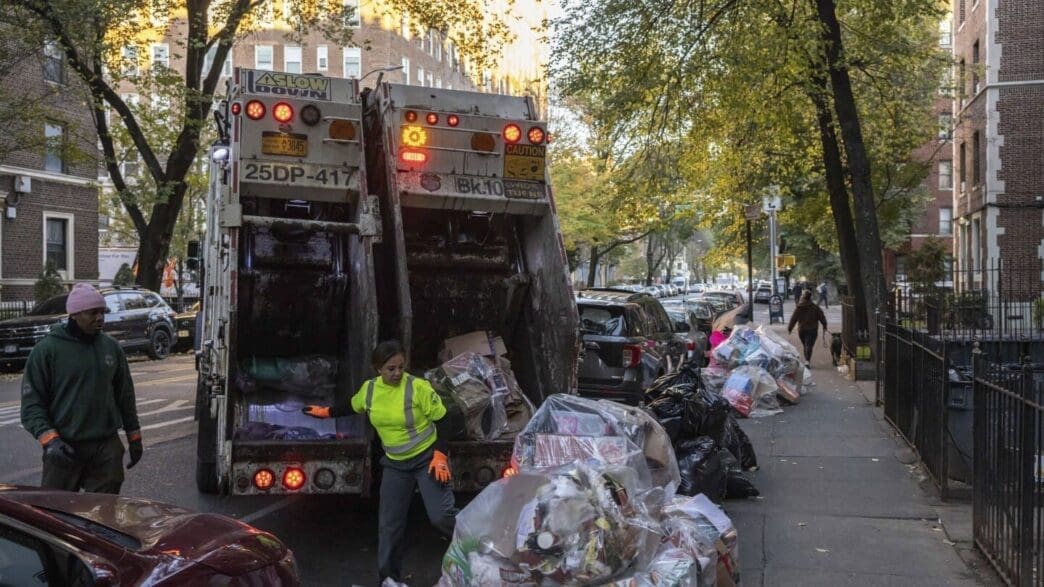In response to its annual challenge of managing 44 million pounds of waste daily, New York City has mandated that residents of buildings with fewer than ten units dispose of their trash in covered garbage bins instead of placing bags on the sidewalk.
This new policy aims to align New York City with global standards where trash containerization has been the norm for decades. Previously, residents were accustomed to placing plastic bags full of garbage directly on the curb, a practice that not only marred the city’s reputation but also exacerbated its rat problem. Plastic bags, despite their convenience, often leaked and attracted rodents, further complicating sanitation issues and rendering streets unsightly.
Jessica Tisch, the city’s former sanitation commissioner, now police commissioner, acknowledged the peculiarity of this change compared to global practices, highlighting that New York’s long-standing habit of curb-side bag disposal is quite unique. According to Tisch, the introduction of covered bins represents a significant cultural shift for the city, demanding adaptation from its inhabitants.
The policy, which began earlier this month, also required businesses to adopt the use of bins earlier in the year. With this initiative, city authorities hope to reduce the number of rats and improve sanitation. Residents like John Midgley, who have lived in cities across the world, welcome the change, noting that previous practices resulted in unpleasant sights and smells on the streets.
Mayor Eric Adams’ administration sees this initiative as a vital step in its ongoing efforts to tackle the city’s rat infestation. Durable bins with secure lids are expected to thwart rodent access more effectively than plastic bags. However, the transition has not been without its challenges. Many buildings lack adequate space for large bins, prompting landlords and homeowners to devise solutions for their placement.
The new requirements also introduce logistical hurdles, as observed by Caitlin Leffel, a Manhattan resident. Her building had to hire personnel to manage the bins, incurring unexpected expenses. Additionally, building superintendents, such as Dominick Romeo, have expressed dissatisfaction with the added responsibilities that come with bin management.
City officials are currently issuing warnings for non-compliance as part of the adjustment period, with fines set to be imposed starting January 2. Despite the initial resistance and adjustment challenges, there is a shared hope among city officials like Tisch that New Yorkers will eventually embrace the change. Fines ranging from $50 to $200 will be enforced to ensure compliance, reflecting the city’s commitment to cleaner streets.
While the transition to garbage bins has posed logistical challenges, it represents a crucial step in combating New York City’s longstanding waste management and rat issues. As residents grow accustomed to the new requirements, the city anticipates a significant improvement in cleanliness and public health.
Source: APNews








